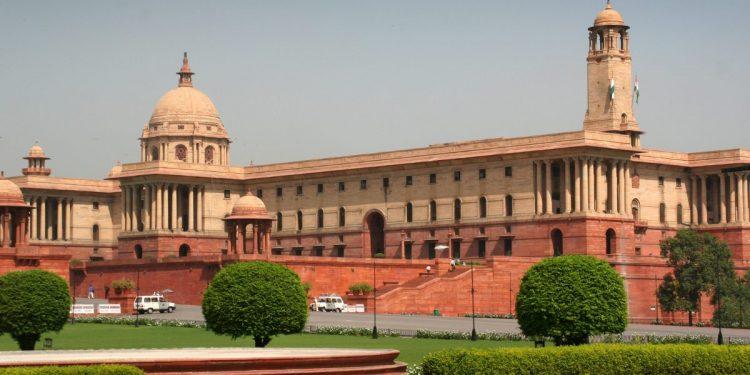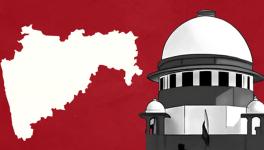Why Courts Can't Review Speaker’s Appointment of PAC Chairman

Judicial review of the actions of the Speaker on the floor of the House is limited to very specific and extreme instances. NIKHIL PARIKSHITH examines the jurisprudence on anti-defection law in the context of the Calcutta High Court’s recent judgement on Mukul Roy’s appointment as the Chairman of the Public Accounts Committee in West Bengal legislative assembly.
—‐———–
Recently, the Supreme Court directed the Speaker of the West Bengal Legislative Assembly to expeditiously decide the petition pending against Mukul Roy under the Tenth Schedule of the Constitution, relating to disqualification on the ground of defection.
Mukul Roy was elected as an MLA from the Krishnanagar assembly constituency on a BJP ticket in the 2021 West Bengal Legislative Assembly Election. After the declaration of assembly election results, he allegedly defected to the All India Trinamool Congress (AITC).
The Supreme Court was hearing a special leave petition filed by the Speaker of the West Bengal Legislative Assembly against a decision of a Division Bench of the Calcutta High Court, headed by then Acting Chief Justice, Rajesh Bindal, which arose from a writ of quo warranto (styled as a PIL) instituted by Ambika Roy, a BJP MLA. The relief sought in this PIL was confined only to the appointment of Mukul Roy as Chairman of the Public Accounts Committee (PAC) by the Speaker, which was done on the floor of the House and was therefore a ‘proceeding’ in the legislative assembly. What is relevant to note is that the disqualification petition, filed by Suvendu Adhikari, the Leader of Opposition in the Legislative Assembly, against Mukul Roy was not the subject matter of the proceedings before the Calcutta High Court.
However, the Calcutta High Court arrived at a finding of fact that the alleged defection by Mukul Roy to the AITC had “in fact” occurred, thereby pre-empting the Speaker’s decision. Accordingly, the Speaker was directed to place before the High Court, the orders passed in the disqualification petition pending against Mukul Roy. In a sense, this direction of the Division Bench was a mandatory injunction to the Office of the Speaker to decide the disqualification petition, and that too, in a particular manner.
Also read: Privileges to legislators to do their duty and not for indulging in criminal acts: SC
The rationale behind this approach was that the issue of Mukul Roy’s disqualification as an MLA on account of his alleged defection was correlated to his appointment as Chairman of the PAC. Another justification given by the High Court was that the Speaker had failed to take a decision on the disqualification petition against Mukul Roy within the three month period prescribed by the Supreme Court’s three-Judge Bench headed by Justice Rohinton Nariman in Keisham Meghachadra Singh.
What stands out from this decision of the Calcutta High Court is that it co-relates two distinct functions of the Speaker – appointment of an MLA as Chairman, PAC, which is an act done on the floor of the House, and disqualification proceedings against the MLA in question, which is deemed under law to be adjudicated outside the House and therefore not a proceeding before the assembly.
The action of the Speaker to appoint Mukul Roy as Chairman, PAC was also held to be in violation of a “constitutional convention” as the High Court was of the view that there was a past practice in the West Bengal legislative assembly to appoint an opposition party member as Chairman, PAC. According to the bench, this departure from a past practice, which according to the Court had become institutionalised in the assembly, gave rise to a “substantive illegality” and thus exposed the Speaker’s actions on the floor of the House to judicial review.
The decision of the Calcutta High Court (now being examined by the Supreme Court) opens up new avenues for judicial review of the Speaker’s actions on the floor of the House since it introduces a duty on the Office of the Speaker to adhere to constitutional conventions in legislative proceedings.
As the law stands today, the permissibility of judicial review of a Speaker’s actions on the floor of the House is dependent on a two-fold enquiry: (i) whether the action complained of had occurred during “proceedings in Parliament” or “proceedings in the Legislature of a State” (as the case may be), and (ii) If so, whether the action complained of, relates to an “irregularity of procedure” as opposed to a “substantive illegality”. In case of the latter, judicial review is permissible.
The standard of “substantive illegality”, however, explained by the Supreme Court in the Raja Ram Pal Case, appears to be wide. By virtue of the Calcutta High Court decision, this standard of “substantive illegality” now stands expanded and covers departures from constitutional conventions.
The Speaker’s status
Sub-Articles (1) of Articles 122 and 212 of the Constitution of India, which are pari materia, mandate that ‘any’ proceedings inside the legislature cannot be called in question on the ground of “any alleged irregularity of procedure”.
Sub-Articles (2) of Articles 122 and 212 bar the jurisdiction of any Court in relation to the powers vested and exercised by an Officer or Member of Parliament or the State Legislature, as the case may be, on matters relating to regulating procedure or conduct of business or for maintaining order.
Under the scheme of the Constitution, the office of the Speaker enjoys a high constitutional status since the Constitution reposes immense faith in this office. There is a presumption, albeit a rebuttable one, in favour of the Office of the Speaker to have a sense of elevated independence, impeccable objectivity and above all, absolute impartiality. However, recent examples show that this faith in the office of the Speaker has eroded, Manipur being a gross example, wherein the Speaker of the Manipur Legislative Assembly had failed to decide disqualification petitions under the Tenth Schedule for more than three years, which prompted a three-Judge bench headed by Justice Nariman in Keisham Meghachadra Singh to fix an outer limit of three months for deciding such petitions. However, from a reading of the said decision it appears that this three-month outer limit is not cast in stone and what is in fact expected from the Speaker, is to decide such petitions within a reasonable time frame.
Also read: Legislative Coups And The Tenth Schedule
For the purposes of Articles 122 and 212, the Speaker is very much an Officer by virtue of Articles 93 and 178 of the Constitution since he is the presiding officer of the House. Therefore, powers exercised by him/her in matters relating to regulating procedure or the conduct of business, or for maintaining order, in Parliament or the Legislature of a State are, based on a literal reading, beyond the scope of judicial review.
A three-Judge Bench decision of the Supreme Court in Mohd Saeed Siddqui held the expression “proceedings in Parliament” occurring in Article 122 of the Constitution to “include everything said or done in either House in the transaction of the Parliamentary Business”. In Godavaris Misra, the question before a Division Bench of the Orissa High Court was whether the giving of notice of questions by members prior to the commencement of the actual session and the allowance or disallowance of the same by the Speaker could be considered to be part of the ‘proceedings in Parliament’. The High Court relying upon “May’s Parliamentary Practice”, held that this expression is not limited to the proceedings during the actual session of the Parliament, but also includes some preliminary steps such as giving notice of questions or notice of resolutions, etc.
Therefore, the expression “proceedings in parliament or the legislature of a State” is inclusive of all steps taken by the Speaker on matters relating to “regulating procedure” or “conduct of business” or “for maintaining order”.
What stands out from this decision of the Calcutta High Court is that it co-relates two distinct functions of the Speaker – appointment of an MLA as Chairman, PAC, which is an act done on the floor of the House, and disqualification proceedings against the MLA in question, which is deemed under law to be adjudicated outside the House and therefore not a proceeding before the assembly.
As an aside, a conceptual distinction may be noted (which was alluded to earlier) – in the landmark Constitution Bench decision of Kihoto Hollohan. In this case, the Supreme Court carved out a distinction between proceedings on the floor of the house and proceedings before the Speaker under the Tenth Schedule of the Constitution. It was held that under the Tenth Schedule, the Office of the Speaker is akin to a ‘Tribunal’ and therefore operates independently of the House, thus making his actions under the anti-defection law, amenable to judicial review. This distinction has been highlighted by J. Nariman in his seminal decision in Keisham Meghachadra Singh. It appears that this conceptual distinction was glossed over by the Division Bench of the Calcutta High Court in its decision.
“Procedural Irregularity” vis-a-vis “Substantive Illegality”
The Constitution Bench of the Supreme Court in the decision of Raja Ram Pal brought out the distinction between a “procedural irregularity” and a “substantive illegality” for the purposes of Articles 122 or 212 of the Constitution. It was held in this decision that proceedings in the legislature which may be tainted on account of “substantive or gross illegality or unconstitutionality” are not protected from judicial scrutiny.
This conceptual distinction between “irregularity of procedure” and “substantive illegality” was relied upon by the Constitution Bench in the Aadhaar case (Puttaswamy II) wherein among the many issues of contestation, a pivotal one pertained to whether the decision of the Speaker of the Lok Sabha to certify the Aadhaar Bill, 2016 as a “Money Bill” could be subject to judicial scrutiny. The Bench was unanimous in its view that the Speaker’s actions were amenable to judicial review, if the Aadhaar Bill did not fulfil the stipulations contained under Article 110 (definition of “Money Bills”) of the Constitution. It was further held that the institution of Rajya Sabha, which is an important institution signifying federalism, could not be undermined by the Speaker in an arbitrary manner by certifying the Bill as a Money Bill. Thus, the decision of the Speaker certifying the Bill as a Money Bill was held not to be a matter of procedure; and if an illegality had occurred in this decision by being in breach of constitutional provisions, it was held that the Speaker’s decision would be subject to judicial review.
For the purposes of Articles 122 and 212, the Speaker is very much an ‘Officer’ by virtue of Articles 93 and 178 of the Constitution since he is the “presiding officer” of the House.
Justice D.Y. Chandrachud, in his famous dissent, agreed with the majority on the scope of judicial review of the Speaker’s actions in legislative proceedings. He of course went further and held that the Aadhaar Bill was wrongly certified as a “Money Bill” by the Speaker. During the course of his dissent, J. Chandrachud offered some clarity on what sort of matters would fall within the rubric of “procedure”. He noticed Articles 118 to 122 of the Constitution and the procedure contemplated therein to be distinct from “substantive constitutional requirements”. He was of the view that if the Speaker’s actions do not suffer from any “constitutional infirmity”, then it cannot be called into question by the courts.
Article 118 which is pari materia to Article 208, enables the appropriate legislature to frame rules for regulating its procedure and the conduct of its business. The only limitation on this rule making power is that they cannot be ultra vires the provisions of the Constitution. The rules framed under these two articles are procedural in nature and if the validity of the rules is not in question, any decision or interpretation taken by the Speaker ideally cannot be subject to judicial review.
What follows from Justice Chandrachud’s opinion in the Aadhaar case is that actions taken by the Speaker under procedural rules of the legislature stand protected under Articles 122 or 212 of the Constitution, as the case may be.
This brings us to the core issue which arose before the Division Bench of the Calcutta High Court: In the absence of any substantive article of the constitution being violated can a “constitutional convention” be read into the rules of procedure framed by Parliament or the State legislature under Article 118 or 208 of the Constitution? And is the Speaker bound by such a convention?
Extrapolating a constitutional convention in aspects pertaining to the procedure of the legislature
A few facts may be noted – the appointment of Mukul Roy as Chairman, PAC was made by the Speaker under Rule 255 of the Rules of Business of the WB Legislative Assembly, framed under Article 208 of the Constitution. This rule does not prescribe any condition that the Chairman, PAC must be a member of the opposition. The Division Bench of the Calcutta High Court, however, noted that a past practice was prevalent in the WB legislative assembly under which appointments to the post of Chairman, PAC were from the opposition party. This practice was elevated to a “constitutional convention” by the Division Bench and accordingly, it was of the view that breach of such convention gave rise to a “substantive illegality”, thereby exposing the Speaker’s actions to judicial review.
The concept of “constitutional convention” was discussed by the Supreme Court in substantial depth in the decision of K. Lakshminarayanan. After surveying how this concept came to be embedded in our constitutional law, the Bench gave a pithy enunciation of this concept in the following words:
“The constitutional conventions are born and recognised in the working of the Constitution. The purpose and object of constitutional convention is to ensure that the legal framework of the Constitution is operated in accordance with constitutional values and constitutional morality. The constitutional conventions always aim to achieve higher values and objectives enshrined in the Constitution. The conventions are not static but can change with the change in constitutional values and constitutional interpretations. No constitutional convention can be recognised or implemented which runs contrary to the expressed constitutional provisions or contrary to the underlined constitutional objectives and aims which the Constitution sought to achieve.” [emphasis supplied]
In this case, it was argued that the decision of the Union Government to nominate members in the Puducherry Assembly without the consultation of the Government of Puducherry was in breach of a constitutional convention on the strength of the fact that on six earlier occasions, consultations were made before making any such nomination. Significantly, the Supreme Court, in this decision, did not accept this argument.
It was held in the Raja Ram Pal decision that proceedings in the legislature which may be tainted on account of “substantive or gross illegality or unconstitutionality” are not protected from judicial scrutiny.
What stands out from the facts of this case is that it did not pertain to any action of the Speaker on the floor of the House. In fact, the past decisions of the Court in UNR Rao v Indira Gandhi and the SCAORA case, which have elevated a practice to a constitutional convention, were rendered in the context of interpretation of substantive provisions of the Constitution and in completely different factual scenarios. None of these decisions extrapolated a constitutional convention on matters of procedure of parliament or the legislature of a state. What is interesting is that the Bench in K. Lakshminarayanan relies upon a decision of the Supreme Court in Consumer Education and Research Society which negated the reading of a constitutional convention into a parliamentary practice.
Also read: Anti-Defection Law has Failed and Should be Scrapped
In the Consumer Education and Research Society case, it was contended that a constitutional convention had evolved wherein every Lok Sabha had a Joint Committee for the purpose of identifying and classifying “offices of profit”. It was argued in this case that whenever a particular ‘office’ had to be exempted from the disqualification rule under Article 191, the Joint Committee’s opinion was sought on the question of whether the said office was an “office of profit” or not and whether the holding of such office by an MP would conflict with his duties, and whether or not the office should be granted exemption. It was contended that only after a report was given by the Joint Committee recommending an exemption, could a particular “office” be exempted. The Supreme Court did not accept this contention and declined to deem this practice as a “constitutional convention” as it pertained to a“parliamentary procedure”.
The Speaker being the final interpreter of the rules of procedure of the House must be allowed the discretion to exercise his powers without the threat of legal proceedings. It is only in extremely gross and blatant cases should the Courts reign in on the Speaker’s actions. Such cases would include acts that tantamount to violating a substantive constitutional provision or which undermine any of the basic features of the constitution such as federalism or principles of democracy. The Supreme Court may well decide whether this is one such case.
(Nikhil Parikshith is an Advocate-on-Record at the Supreme Court of India. The views expressed are personal.)
Get the latest reports & analysis with people's perspective on Protests, movements & deep analytical videos, discussions of the current affairs in your Telegram app. Subscribe to NewsClick's Telegram channel & get Real-Time updates on stories, as they get published on our website.
























